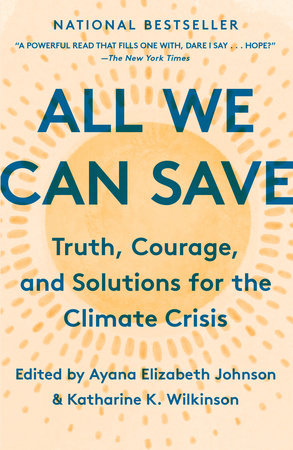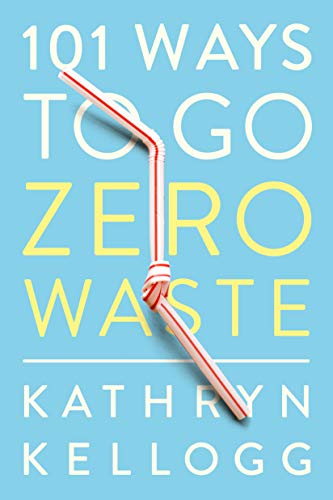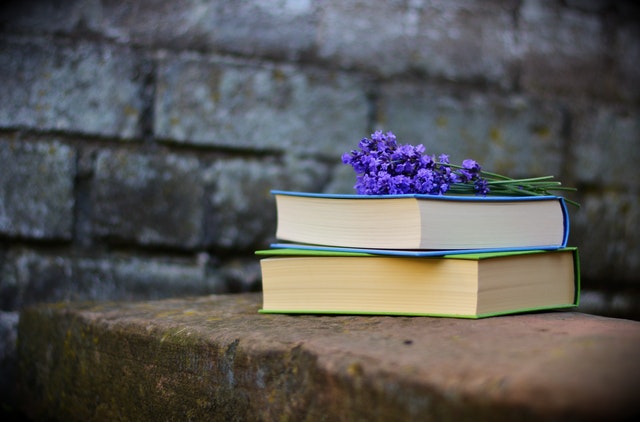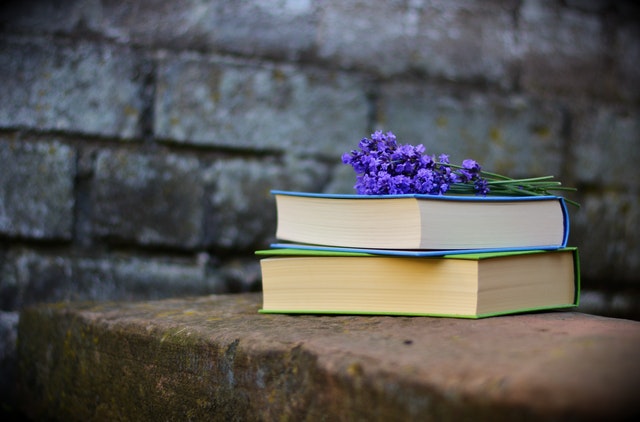Educating ourselves on environmental topics is an important step in solidifying our reasoning and encouraging our actions. I’ve put together a list of 5 books I’ve read recently and enjoyed immensely; these books have a hopeful outlook, a variety of focuses, and many actionable components. This list is in no way complete and will be part of a series I make as I read and learn more about the climate crisis and our planet.

Although this list is in no particular order, the first book I’ll Mention is All We Can Save. This is a beautifully written anthology of essays and poems. It does an amazing job of elevating the voices of women who are experts in various environmentally related fields, many of whom are BIPOC individuals. Although the content is heavy, the text is hopeful. Upon reading the book it quickly became one of my favorites. It took me about 3 months to read through the entirety of it, since each story caused me much contemplation.
If you’re looking for a book that clearly presents myriad ways a person can appreciate and fight for the planet in small, easily read essays, then I believe this is the book for you.

The second book I’ll recommend is 101 Ways to Go Zero Waste. This book is good for beginner environmentalists as well as more experienced environmentalists looking to further lower their waste and impact. It explains some of the issues with recycling and discusses why reducing overall consumption is a better option to strive for. The author raises the important question “are we actually recycling if we’re not buying products made or packaged with recycled content?” She includes many recipes for things a lot of low waste homes may choose to live without, but it’s nice that you don’t have to live without them. She also includes a list of low waste and experience-focused gifts to give for holidays, etc. This book is full of ways to implement change throughout various aspects of your life and is easy to read and reference later.
The author initially came to the zero waste movement after having a health scare in her early 20’s, so if you’ve come to this movement in search of ways to live in a more healthful way, I think this is a good book for you.

The next book I’ll recommend is We Are The Weather. This book primarily focuses on the issues with animal agriculture, and why there is a push to reduce animal product consumption in the fight against climate change. The author does not advocate for everyone to adopt a vegetarian or vegan diet, and even admits that he continues to eat meat on occasion. He instead suggests that people choose 1 meal per day to eat animal products at, and opt for vegetarian or vegan products for the rest of the day’s meals and snacks.
If you’re looking for inspiration to cut back on animal product consumption or want to understand why people are increasingly concerned about the environmental impact of the animal agriculture industry then I think you will appreciate this book. It is full of interesting facts presented in a way that is easy to understand, and it focuses on doing better rather than choosing an all or nothing mentality.

The fourth book I’ll recommend is Go Gently. This book eloquently describes how the health of we as people and the health of the oceans, air, animals, soil, etc are all connected. The book encourages readers to think about not just the packaging of products, but to consider the entire impact including materials used, expected longevity of products, and working conditions in which items are produced. The author uses her platform to interview and elevate the voices of individuals fighting for environmental justice and suffering the consequences of climate change. The book gives easy, actionable steps that people can do to reduce their food waste, overall household plastic consumption, and environmental impact.
This book is beautiful. If you are someone who is drawn to appealing imagery and want to read a book with simple and actionable steps to reduce your environmental impact then this is a good book for you.

The last book I’ll list today is Animal, Vegetable, Miracle. This book focuses on the agriculture industry in America (primarily). It’s one family’s journey to get in touch with food production, sourcing the vast majority of their ingredients for one year from their home garden, the meat and egg-laying animals they raised, and the community of farmers local to them. I didn’t think I would like this book because of the focus on meat consumption, but I was mistaken. Barbara Kingsolver is a talented writer who compels her readers to truly think about the food they consume. She discusses how food raised on small farms is grown differently, usually in harmony with nature. She describes how the food tastes much better when it’s fresh and in season, rather than grown all throughout the year on large monoculture farms. She explains that she thought she and her family would feel deprived without the abundance of choices that typical grocery stores offer throughout the year, but that they felt abundantly blessed by the bountiful food each season produced.
If you’re feeling out of touch with the way food in America is produced and want insight into a more conscious way to fuel our bodies, I think you will appreciate this book.

Every person has individual interests and strengths. Whatever your interests are, I encourage you to learn more about them. With knowledge, creativity, and determination I am confident you will find a way to utilize your passion for the good of the planet.
